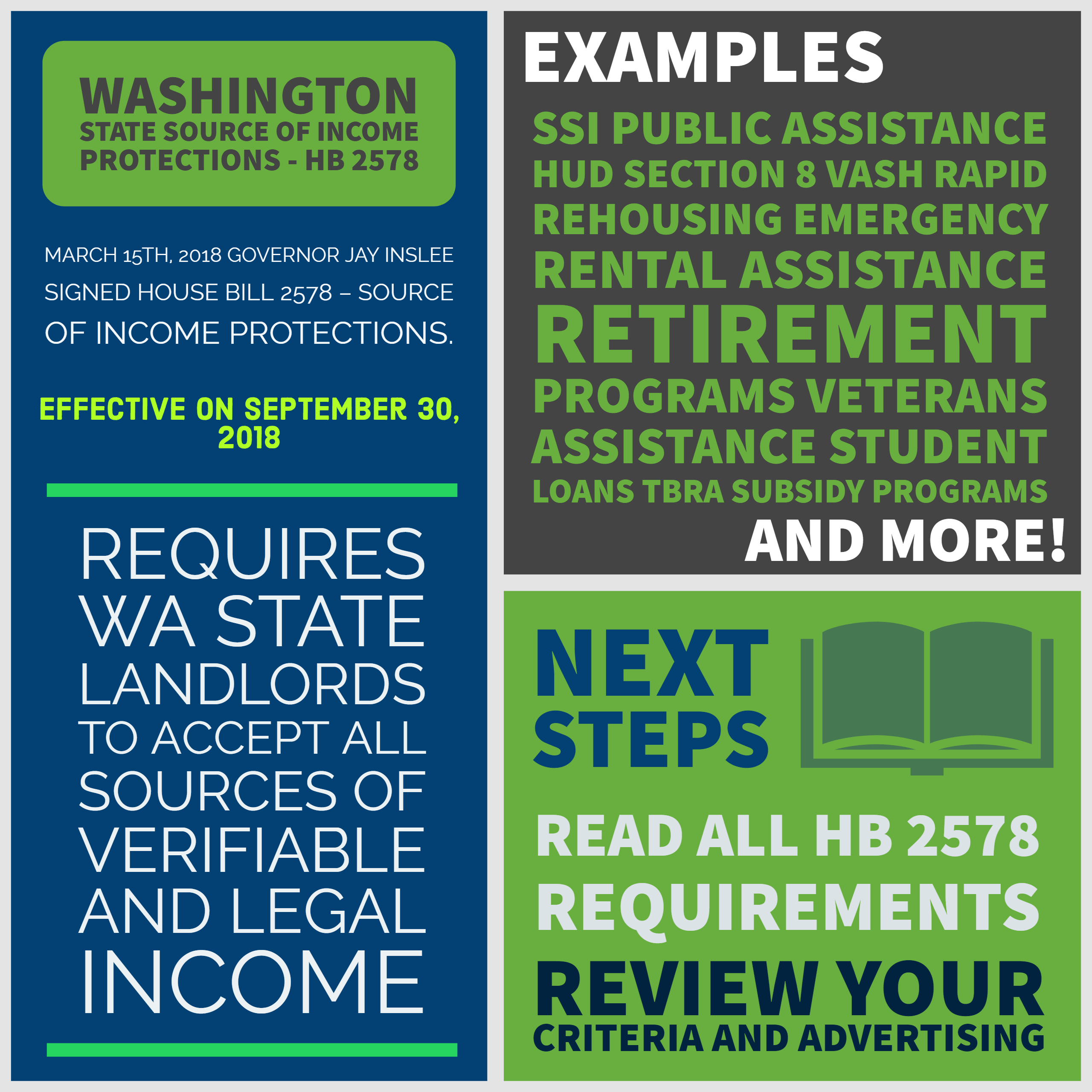
On March 15th, 2018, Governor Jay Inslee signed House Bill 2578 – Source of Income Protections. HB 2578 becomes effective on September 30, 2018 and requires that a landlord within the State of Washington accept all sources of verifiable and legal income, including:
- benefits or subsidy programs
- housing & public assistance
- emergency rental assistance
- veteran & social security benefits
- student loans
- supplemental security income or other retirement programs, and
- other programs administered by any federal, state, local or nonprofit entity.
- Section 8, Housing Choice, HUD, VASH Vouchers
- Rapid Rehousing Program
- HOPWA Tenant Based Rental Assistance (TBRA)
- Shelter Plus Care – TBRA
- Supportive Housing Program – TBRA
- HOME – TBRA
HB 2578 also provides funds of up to $5000 for a landlord through the landlord mitigation fund. Funds are available for those tenants rented to using a housing subsidy program which include:
- Up to $1000 for improvements, after an initial payment (by the landlord) of $500
- Up to 14 days of lost rental income from the date of offer of housing
- Reimbursement for damages
- Reimbursement for unpaid rent and unpaid utilities
Click here to learn more about HB 2578
WHAT THIS MEANS TO FOR YOU: Review your criteria and any advertising
- Do not exclude, or require additional conditions (cosigner, increased deposit, etc.) if an applicant is receiving assistance from any federal, state, local or nonprofit entity.
- Do not exclude, or require additional conditions (cosigner, increased deposit, etc.) based on any verifiable, legal income source.
- Consider all sources of income when determining “income-to-rent” ratio for those receiving assistance from federal, state, local or nonprofit entity. In other words, an applicant should only be required to meet the income-to-rent ratio based on the applicant’s portion of rent – not the entire rental amount.
Please understand that the information contained in this message touches on important legal matters and does not constitute – nor is it a substitute for advice of counsel. We recommend that you not act upon this information without first consulting with your attorney.